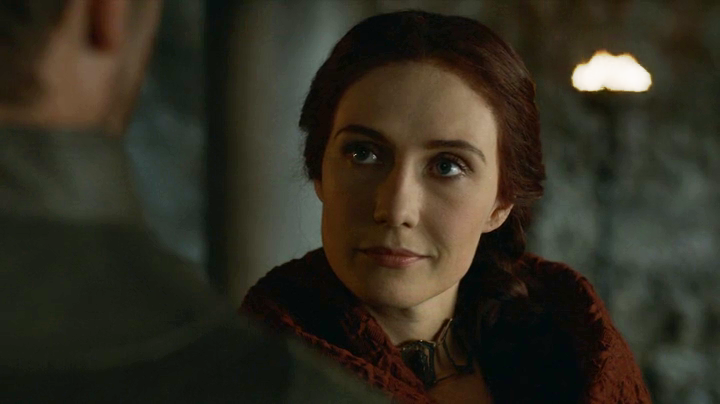Brilliant article. Codex IS games journalism.
While I'm very impressed with how the game has been presented so far (and of course with the fact that it's being made at all!), I do have some issues. For such a story and immersion-driven game there's been a lot of focus on appropriate gameplay challenge, balance, combat. The list of NPCs has extended descriptions of their kewl powers for eliminating foes, but not so much of their personalities and their possible interactions with the PC and the world beyond gamified, generic violence. I may very well be overreacting but frankly I'm a little worried that T:ToN may end up a bit too "gamey" and not live up to its full narrative potential. Let me explain.
As of late I've come to the conclusion that the essence of videogames as a narrative medium is not gameplay (and obviously not cutscenes, i.e., movies) but non-gameplay interaction - interacting with the world, manipulating systems and being manipulated by them, not according to game logic but according to the world's own natural logic - without any arbitrarily imposed winstates or failstates, rewards and punishments.
As far as I can see, all the most powerful narrative sequences in videogames arise from non-gameplay interaction. The most common way designers drain the narrative power from a sequence is by presenting it as either a cutscene, or gameplay. We can all laugh with relief at how much worse Torment would be if Ravel's famous question and TNO's answer were presented in a cutscene. But imagine if Ravel's question was gamified. What can change the nature of a man? Faith? Congrats, you get +5 morality points! Power? Good guess, your Strength has increased by 2 levels! Wealth? And behind door #3 we find... 1000 gold coins, redeemable for weapons, health potions and other tools for removing generic obstacles. Regret? BZZT! Wrong answer, game over! Reload the last save and learn your lesson!
We all know that's not how it goes. There is no wrong answer. There is no right answer. This is not a game. It's just something you do. It's non-gameplay interaction.
And it's probably the most outstanding narrative moment in the history of videogames.
Unlike a cutscene, the player is not focused on watching the characters say and do stuff, and unlike a gameplay sequence, he's not focused on the banal task of winning, of gaming the arbitrary system to get the best result. His focus is squarely on the world, the fiction, the narrative, and as we all know, a videogame narrative makes such an unbeatable impression because the work is not telling or showing him something but letting him do it.
But if the interaction is gamified then you lose that narrative focus. It becomes a matter of trying to win the game instead of immersing yourself in the world - a sad design mistake which we see repeated again and again in all too many flawed works. In the real world, and in fiction, only a small number of systems work on game logic - notably, games themselves, and sports. But in current videogames almost everything works on game logic. Be that death, or killing, or food, or money, or stories, or relationships - it's all gamified to the point of absurdity. If you're lucky enough to be allowed to interact with a videogame's world, then most of the time you're still forced to interact with it through gameplay - an arbitrary system that challenges you to reach a winstate and avoid a failstate, something which is not at all conducive to truly exploring the nature of a world or a character, or, in general, of utilizing the narrative power of interactivity. This omnipresent gamification is not at all essential to videogames. It's a relic of arcade games and of the tabletop wargames that gave rise to RPGs. In immersive, narrative videogames, it's an anachronism. It gets in the way of the immersion. To achieve the most immersive world, systems should only work on game logic when it makes sense for them to do so. I'm not saying all systems should be realistic, but they should follow the natural laws of the world, not arbitrary game rules.
This leads me to suspect that the way to really knock T:ToN out of the park is to extend the philosophy behind the interaction of answering Ravel's last question to the whole work. That is, focus on non-gameplay interaction over gameplay or cutscenes or any other form of narration. I'm not suggesting Torment shouldn't have gameplay. What I am suggesting is this: don't ask yourself what kind of gameplay you need, ask yourself what kind of interaction you need. If the most appropriate kind of interaction is some kind of gameplay, then great, go with that. If not, use your imagination. Ask yourself: What do we want the player to think and feel here? Is gameplay the best way to achieve that? Or would non-gameplay interaction be more immersive, more powerful? In general, go through the whole system and degamify as many interactions as seems appropriate for the narrative.
PS:T took RPGs to the next level by discarding tired tropes. In my opinion, generalized non-gameplay interaction - if you will, degamification - is currently the next level not just for RPGs but for narrative videogames in general. The main reason PS:T is so outstanding is because it's already packed with meaningful non-gameplay interaction, the most powerful narrative tool yet known to man. If you just follow its formula you will surely make one of the best RPGs of all time. But if you generalize its lessons, and give a huge boost to the proportion of non-gameplay interaction over gameplay, then you could make something even more groundbreaking than PS:T itself. Good luck!
Aaaand let the flames begin. :p


















![Glory to Codexia! [2012] Codex 2012](/forums/smiles/campaign_tags/campaign_slushfund2012.png)
![Have Many Potato [2013] Codex 2013](/forums/smiles/campaign_tags/campaign_potato2013.png)
![The Year of Incline [2014] Codex 2014](/forums/smiles/campaign_tags/campaign_incline2014.png)


























